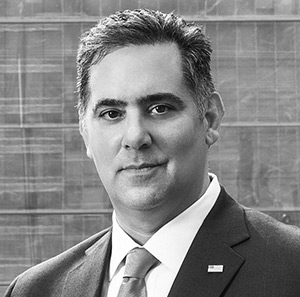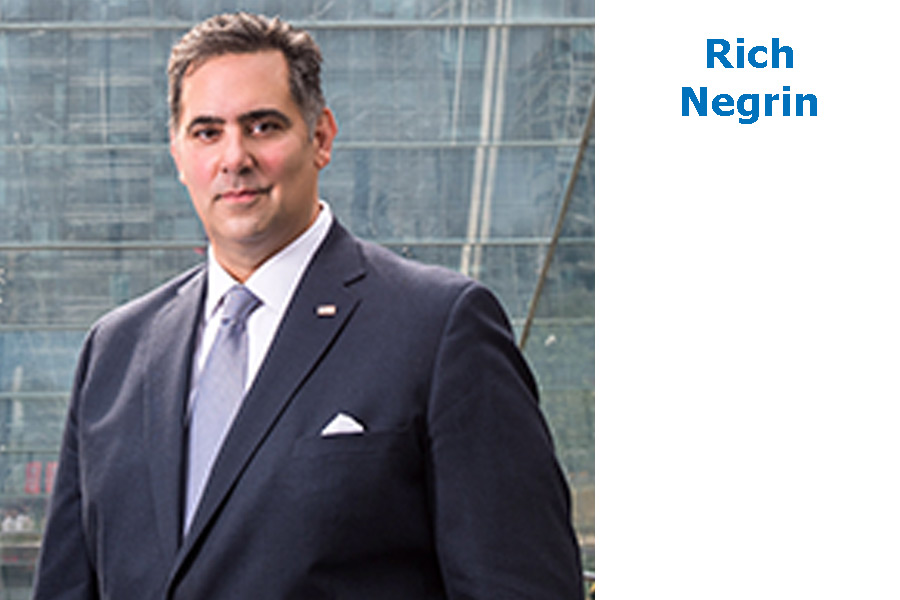Rich Negrin was 13 when he witnessed his father gunned down by assassins. Since then, he has not lost sight of combatting gun violence. After a brief career with the NFL, Negrin worked at the Philadelphia District Attorney’s Office where he prosecuted violent crimes, including hate crimes. His other leadership positions included vice chair of the independent Philadelphia Board of Ethics, city managing director and overseeing PhillyRising.
PGN: There have already been nine transgender women of color murdered across the nation this year. If elected, what will your office do to combat violence against transgender individuals in Philadelphia, specifically women of color?
RN: I think one of the things we need to do is increase awareness and sensitivity around the challenges and why these things are happening. It is inexcusable. That level of intolerance offends me profoundly. We need to get not more sensitive but more aggressive around ensuring the rights of all of us.
PGN: If elected, will you assist PGN in our ongoing efforts to settle all open-records litigation for access to Nizah Morris records?
RN: This is bizarre. I would need to know more (for example, whether the disclosure would compromise an ongoing investigation). On its face, I don’t see a valid legal basis to refuse this open-records request. As city managing director, I hired the city’s first chief open-data officer. We released hundreds of data sets as part of our effort to have open government, including one of the largest public-safety data sets ever released. We should always bend toward transparency and disclosure, especially when it is in the public interest.

PGN: How would you approach racial disparities in both the charging and sentencing processes?
RN: I want to do implicit-bias training. I want to do some data collection on how we charge, dispose of and sentence individuals in Philadelphia. I want to bring in a third party. I want a validator, someone who is an HR professional on diversity issues, and actually collect data around how we’re doing those things to ensure that our system is not treating people in disparate ways and that the pursuit of justice is truly a search for equal justice. Part of it is the programs and training and emphasis. Part of it is diversity itself. The D.A.’s Office should reflect the city that it serves and helping to drive those things. Bringing a wide variety of perspectives [will] help inform all of our decisions. That culture needs to make its way not just through the D.A.’s Office but through all of city government.
PGN: What is your position on the current immigration crackdown being led by the Trump administration? What role does the D.A.’s Office play in this process?
RN: Philadelphia is different and I am profoundly offended and angry with the tone and the tenor of this administration. I think D.A.s and attorneys general are going to be the front line of defense on much of the nonsense that is coming out of Washington. Philadelphia needs to be ground zero for how we protect those values. As the son of immigrants who still believes in the American dream and still believes in bringing our families together, I’m ready to fight today.
PGN: In light of the bribery charges facing our current district attorney, what would you do to root out corruption within the office?
RN: That starts on day one. I come in with a very different background. I was appointed by Mayor [John F.] Street to serve on the ethics board here. After we had over 20 indictments in city government way back in the day, I was part of that independent board of ethics to help clean up city government, provide training and create and enforce our ethics rules here in Philadelphia. During my six years as managing director, not one of my folks, not one of my direct reports and certainly not me in my 11 years of public service, was there ever a lawsuit, an investigation or a subpoena [of us]. I bring a record of ethical leadership and integrity that goes beyond just being a good person. I actually implemented ethics programs and hired ethics officers and engaged them in training and systems that have helped change the culture of government. I’ll bring the same thing to the D.A.’s Office. We are going to have an ethics officer who is beyond reproach, who has an incredibly strong reputation. Ethics goes far beyond just the common-sense stuff like not accepting any gifts or dinners or vacations or cars. It’s so much more than that. It’s about doing your job with the highest level of ethical conduct and setting a new standard for integrity.
PGN: Some organizations have called for the release of data on the number of people of color convicted in Philadelphia each year. Is this something you would support?
RN: I think we should go beyond that. I think we should release data across the board, not just [on] people of color. I think we should look at what we’re doing, how we’re doing it and how those people are treated. It’s not just about the number of folks. It’s also about: Are they being treated disparately and are their sentences unfair? Are their dispositions unfair? Are we sentencing them more aggressively?
PGN: What is your position on cash bail?
RN: Its time has come, clearly. We need significant bail reform. My hesitancy to throw it out is I want to do that in partnership with the Public Defenders Office and the judges. I want to look at other jurisdictions. I want to meet with our stakeholders and look at what’s the best solution for Philadelphia. It’s inappropriate for someone to be held in custody because they can’t make bail. In essence, what you’re doing is criminalizing poverty, especially someone who has not been convicted and awaits trial in custody for a longer period of time than they probably would have been sentenced to begin with. That’s an injustice and the D.A.’s Office can’t be in the business of injustice. The D.A.’s Office needs to be the steward of integrity in the criminal-justice system. I’m going to take that seriously.
PGN: What is your position on the death penalty?
RN: I was on the board of the Pennsylvania Innocence Project and we had over 60 exonerations in Pennsylvania over the last 15 years of folks who have been wrongly convicted and on death row. If we were executing people relatively quickly, some of those folks would have lost their lives. That’s unacceptable to me. I support Gov. [Tom] Wolf’s moratorium and I would not seek the death penalty.
PGN: Do you think that police violence, specifically against communities of color, is an issue in Philadelphia? If so, what would you do to combat it?
RN: It’s an issue everywhere. I think it’s important to say the majority of our officers are great law-abiding folks who play by the rules and do a good job. But there are always going to be those officers who cross that line and either use poor judgment or flat-out engage in police misconduct because it’s racially motivated or they’re just a bully with a badge. The way to deal with that is holding police officers accountable. I’m a huge proponent of body cameras. It’s not just an important tool for officers’ safety but to document interactions. Cameras are an incredibly important tool to make sure police are held accountable and to protect officers who are playing by the rules and doing a good job.
PGN: The D.A.’s Office has not had an LGBT liaison since the beginning of 2015. Is this a position you would resurrect?
RN: We’ve got an incredibly rich diverse community here in Philadelphia and that includes the Gayborhood. We should have liaisons for all of them. I want our D.A.s to be big brothers and big sisters. I want to aggressively reach out to communities that have not had a voice or representation and to give them a contact and a friend in the D.A.’s Office who can be an important partner.
PGN: Do you support the statewide LGBT nondiscrimination bill? If yes, what would you do to advance it?
RN: Yeah, it’s ridiculous that in 2017 that you can still be fired because you’re gay. I stood there with leaders of the community [for marriage equality]. I hope to stand there again when there is a law that prohibits discrimination in any form, for any reason. I support that wholeheartedly. I’m going to champion diversity across the board as I have throughout my career.
PGN: Do you support the statewide hate-crimes bill? If yes, what would you do to advance this measure?
RN: I do. Hate crimes are not just a crime against an individual. They are a crime against an entire community and it’s really an act of domestic terrorism, trying to terrorize an entire people with one single act and that’s very different than just committing an assault. That is a hate crime and we would treat it that way. We will call it what it is and sentence it that way.
PGN: Until an LGBT-inclusive hate-crimes law is adopted, what do you think can be done to better track and report hate crimes motivated by a victim’s sexual orientation and/or gender identity?
RN: Hate crimes aren’t reported that openly. There’s no hate-crimes task force here in Philadelphia. I think hate crimes specifically are ripe for task forces, partnerships and working with the Attorney General’s Office and hopefully U.S. attorneys that are reasonable, thoughtful and willing to make a difference, especially when they see an uptick and respond accordingly. I think the community needs to play an important role here and I think the community often learns of the nature of the crime before the police do. I think police officers or local law-enforcement officials in rural areas are not as sensitive to those issues and aren’t trained to report them that way. I think the community has a really important role to play not just with law enforcement but with stakeholders and public officials as well.
PGN: Why should the LGBT community vote for you?
RN: I’ve been a champion of the community my entire career. I’ve committed my life to public service. I’m sympathetic to a community that is targeted and victimized. I lost my dad to a homicide when I was 13 years old. That gave me the empathy and desire to seek equal justice and fairness. That’s why I think I’m the best candidate, not just because of my professional experience, which I think exceeds all of the other candidates. I think I have the most significant leadership and management experience that’s ready to lead an office today and start safeguarding our values. This is not time for on-the-job training. No other candidate has the record of integrity, the record of management and the record of the community that I have. I’m going to hit the ground running on day one. I’ll be ready to lead and safeguard our values. That’s why I’m the best choice for D.A.
For more information about Rich Negrin, visit www.richnegrin.com.
